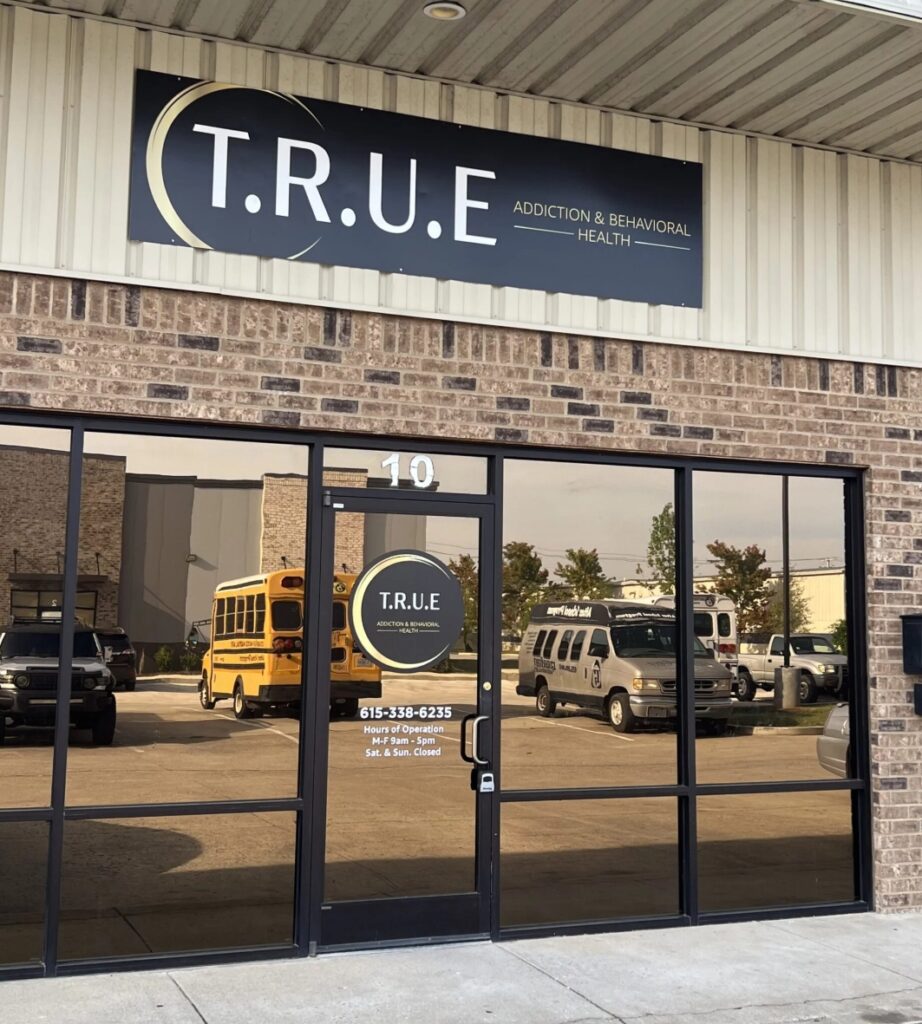
Living with the Perilous Lifestyle of Addiction
Addiction is a complex and multifaceted condition that transcends mere substance abuse; it is a chronic disorder characterized by compulsive engagement in rewarding stimuli despite adverse consequences. The consumption of alcohol, illicit drugs, and even behavioral addictions, such as gambling or compulsive internet use, encapsulates a perilous lifestyle that not only devastates the individual but also wreaks havoc on families, communities, and society at large. The ramifications of addiction are profound and far-reaching, presenting a grim tableau of physical, psychological, economic, and social challenges.
At a biological level, addiction alters brain chemistry and wiring, creating profound changes in an individual’s motivation and reward systems. Substances like alcohol and narcotics release excessive amounts of dopamine, a neurotransmitter associated with pleasure and reward. Consequently, the brain begins to equate substance use with survival itself, leading individuals to prioritize their addiction over essential life activities such as work, relationships, and personal health. The transition from casual use to dependency can occur in a remarkably short time frame, rendering the individual ensnared in a cycle of craving and withdrawal that is both physically and emotionally debilitating.
The psychological ramifications of addiction include a broad spectrum of co-occurring mental health conditions, such as anxiety, depression, and personality disorders. Those caught in the throes of addiction often find themselves grappling with profound feelings of guilt, shame, and hopelessness. Coping mechanisms may be distorted; individuals may resort to further substance use as a means of self-medication, thus exacerbating their condition. The stigma surrounding addiction often inhibits individuals from seeking help, further entrenching them in their perilous lifestyle. This interplay between addiction and mental illness creates a vicious cycle, where one condition perpetuates the other, complicating recovery efforts.
Economically, addiction exacts a steep price, both for the individual and society. Individuals often experience a deterioration of their professional life due to absenteeism, decreased productivity, and a tendency towards reckless behavior. Job loss, financial instability, and increased healthcare costs associated with addiction-related ailments contribute to a precarious financial situation. In a broader context, communities bear the brunt of addiction through increased crime rates, heightened demand for social services, and a strain on healthcare resources. The National Institute on Drug Abuse estimates that the overall cost of substance abuse in the United States exceeds $740 billion annually, including lost productivity, healthcare expenses, and crime-related costs. This staggering figure underscores the urgent need for comprehensive strategies aimed at prevention and treatment.
The social repercussions of addiction are equally pronounced. Relationships with family and friends often suffer as the individual’s priorities shift toward their substance of choice. Trust is eroded, and emotional connections are strained, leading to feelings of isolation and abandonment. The impact of addiction reverberates through families, affecting children and loved ones who may unwittingly adopt maladaptive behaviors or struggle with psychological trauma. The presence of addiction alters the fabric of social dynamics, giving rise to cycles of addiction that can perpetuate across generations.
While the perilous lifestyle associated with addiction can appear insurmountable, it is crucial to recognize that recovery is not only possible but achievable. Various therapeutic modalities, including cognitive-behavioral therapy, motivational interviewing, and medication-assisted treatment, have proven effective in addressing the multifaceted nature of addiction. In this post we will discuss the various challenges of a life of addiction and a solution to those who suffer.

Potential Legal Ramifications from a Life of Addiction
Addiction is a multifaceted issue that permeates various aspects of an individual’s life, often leading to significant legal ramifications. The consequences of chronic substance abuse extend beyond the individual and may involve criminal activity, civil liabilities, and complications related to family law, thereby engendering a wide array of legal challenges.
One of the most pronounced legal consequences of addiction is the potential for criminal behavior. Individuals struggling with substance abuse may resort to illegal activities to support their habits, such as theft, drug trafficking, or driving under the influence. Engaging in such behaviors not only places the individual at risk for arrest and prosecution but also exposes them to severe penalties, including incarceration, fines, and a permanent criminal record. A criminal record can hinder employment opportunities and affect an individual’s ability to secure housing and maintain personal relationships, further compounding the challenges faced by those in recovery.
In addition to criminal charges, individuals with substance use disorders may confront civil liabilities. For instance, if an individual causes harm to others while under the influence—such as being involved in a motor vehicle accident—they may be held liable for damages. Civil suits can encompass a range of issues, from personal injury claims to property damage, resulting in financial repercussions that can be devastating for someone already grappling with the strains of addiction. Furthermore, civil liabilities may extend to family law issues, particularly in child custody and domestic relations cases. Courts often view substance abuse as a significant factor when determining custody arrangements, as the well-being of children is of paramount importance. A parent’s addiction can lead to potential restrictions or loss of custody rights, complicating familial dynamics and exacerbating emotional distress.
Moreover, the burgeoning field of drug courts seeks to address the intersection of addiction and the legal system by providing treatment-oriented alternatives to incarceration. These courts aim to reduce recidivism and help individuals attain recovery while navigating the legal landscape. However, the success of such programs hinges on the willingness of individuals to engage actively in rehabilitation.
The life of addiction is fraught with potential legal ramifications that can have long-lasting effects. From criminal charges to civil liabilities and family law disputes, the impact of addiction permeates various spheres of life. Addressing these legal challenges requires not only individual accountability but also systemic support, including accessible treatment options and legal resources, to facilitate sustainable recovery and reintegration into society.

The Health Risks of Living with Addiction
Addiction, defined as a chronic, relapsing disorder characterized by compulsive drug seeking, continues to pose significant health risks affecting millions of individuals globally. The implications of addiction extend beyond the immediate physical health of the individual; they permeate psychologically as well. The following explores the multifaceted health risks associated with living in the throes of addiction.
Primarily, the physical health risks are profound and often life-threatening. Substance use disorders, including alcohol and drug addiction, can lead to the development of severe health conditions. For instance, chronic alcohol consumption is a well-documented precursor to liver diseases such as cirrhosis and hepatocellular carcinoma. Similarly, intravenous drug use can result in infectious diseases like human immunodeficiency virus (HIV) and hepatitis C, transmitted through the sharing of needles. The misuse of prescription medications, particularly opioids, significantly heightens the risk of overdose, which remains a leading cause of accidental death in various demographics. These physical ailments not only deteriorate individual health but also burden healthcare systems due to increased hospitalization and treatment needs.
Beyond physical health, addiction severely impacts mental health. Many individuals suffering from addiction concurrently experience mental health disorders such as depression, anxiety, and post-traumatic stress disorder (PTSD). This co-occurrence often complicates treatment approaches and can exacerbate withdrawal symptoms, creating a vicious cycle that makes recovery arduous. The psychological toll of addiction can lead to cognitive impairments, affecting memory, decision-making, and impulse control, which further entraps the individual in maladaptive behaviors.
Addiction poses immense health risks that encompass physical ailments and deteriorating mental health. Addressing these issues necessitates a comprehensive understanding of addiction as a multifactorial disease, underscoring the need for integrated treatment approaches that encompass medical and psychological.

The Social Impact to Individuals Living with Addiction
The social consequences of addiction extend beyond the individual to families, communities, and healthcare systems. Here we explore the various dimensions of the social impact of individuals living with addiction, examining the strain on interpersonal relationships, economic burdens, and the stigma associated with addiction.
First and foremost, addiction often leads to the deterioration of interpersonal relationships. Individuals grappling with substance use disorders frequently experience estrangement from their families and friends due to erratic behaviors, deceit, and withdrawal from social interactions. These relational disruptions can engender a cycle of isolation, compounding the challenges faced by those living with addiction. Families often endure emotional distress, financial strain, and a sense of helplessness when dealing with a loved one’s addiction. This can result in strained familial bonds, often necessitating the need for therapy or support groups such as Al-Anon to cope with the emotional fallout.
The economic implications of addiction are equally profound. Individuals with substance use disorders may face difficulties in maintaining steady employment, resulting in decreased income and increased financial instability. The National Institute on Drug Abuse has indicated that substance misuse costs the U.S. economy over $740 billion annually in lost workplace productivity, healthcare expenses, and crime-related costs. This financial burden extends beyond the individual, affecting communities and taxpayers through increased healthcare costs, criminal justice expenses, and the demand for social services. Communities often witness a cycle of poverty and addiction, as economic instability exacerbates the conditions leading to substance abuse.
Moreover, stigma plays a crucial role in shaping the social landscape for individuals struggling with addiction. The pervasive negative perceptions surrounding addiction can lead to discrimination, marginalization, and barriers to accessing treatment. Individuals may be labeled as morally weak or undeserving of compassion, which complicates their recovery journey. This stigma can deter individuals from seeking help, perpetuating a cycle of addiction that not only affects them but also their families and communities. Combatting this stigma is essential for fostering a supportive environment that encourages recovery and reintegration into society.
The social impact of individuals living with addiction is extensive, affecting families, the economy, and societal perceptions. The need for a comprehensive approach that includes education, community support, and effective treatment options is imperative to mitigate these effects. By addressing the underlying issues associated with addiction, we can work towards fostering a more inclusive and compassionate environment that aids individuals in their recovery, ultimately benefiting the entire community.

TRUE Addiction and Behavioral Health is Tennessee’s Leading Addiction Treatment Organization and Offers a Path to Recovery
In Tennessee, TRUE Addiction and Behavioral Health stands out as a leading organization dedicated to addressing the pervasive issue of substance use disorders and promoting holistic well-being among its clientele. Established with a mission to provide comprehensive, evidence-based treatment for addiction, TRUE Addiction recognizes the intricate interplay between biological, psychological, and social factors in the development and progression of addictive behaviors.
At its core, TRUE Addiction prioritizes an individualized approach to recovery, understanding that no two individuals experience addiction in the same way. The organization employs a team of skilled professionals, including licensed therapists, medical doctors, and addiction specialists, who collaborate to design tailored treatment plans. These plans incorporate a variety of therapeutic modalities, including cognitive-behavioral therapy, motivational interviewing, and mindfulness practices, among others. By integrating these diverse methods, TRUE Addiction ensures that clients receive the most effective care, addressing not only the physical aspects of addiction but also the underlying emotional and psychological factors that contribute to substance use.
Moreover, TRUE Addiction and Behavioral Health places a strong emphasis on aftercare and long-term recovery. Recognizing that the journey to sobriety extends beyond initial treatment, the organization provides ongoing support through alumni programs, support groups, and access to community resources. This commitment to sustained recovery is essential, as the risk of relapse can remain high long after formal treatment has concluded. By fostering a sense of community and continuity, TRUE Addiction enables individuals to build resilience and navigate the challenges of maintaining sobriety in everyday life.
The organization’s impact extends beyond its immediate clients; it also advocates for broader awareness and understanding of addiction as a public health issue. Through educational initiatives, community outreach, and partnerships with local organizations, TRUE Addiction seeks to destigmatize addiction and promote compassionate responses to those affected by it. By fostering an environment of empathy and support, the organization not only aids individuals in their recovery journeys but also cultivates a more informed and compassionate society.
TRUE Addiction and Behavioral Health represents a beacon of hope in Tennessee’s struggle against addiction. Through its comprehensive, individualized treatment plans and commitment to long-term recovery, the organization has established itself as a leader in the field of addiction treatment. By addressing addiction holistically and promoting community understanding, TRUE Addiction not only transforms lives but also contributes to the well-being of the wider community.
In Conclusion
In conclusion, living the perilous lifestyle that comes with addiction is fraught with peril, encompassing biological, psychological, economic, and social dimensions. The consequences of addiction infiltrate every aspect of life, creating a pervasive darkness from which escape appears difficult. Nevertheless, understanding the nature of addiction as a treatable condition is paramount. Society must embrace a compassionate approach that emphasizes education, prevention, and effective treatment strategies to combat the addiction epidemic. Only through collective action and unwavering support can we hope to dismantle the cycles of addiction that threaten individual lives and societal well-being.
If you or someone you know is struggling with substance abuse or a mental health issue, contact TRUE today to get started on the path to long-term successful recovery. TRUE is a premier provider of addiction and mental health services located in Tennessee. TRUE offers the most comprehensive menu of services for people in need of Tennessee mental health treatment and for those struggling with substance use disorder.

Give us a call today, we are here to help 24/7.
Verify Your Insurance Online
We are here to help. Contact us today and get the answers you need to start your journey to recovery!
